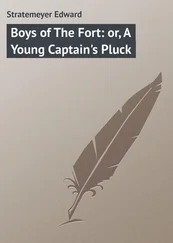‘I was just passing this way for a walk. We still can’t walk along the beach itself – even though the invasion danger’s long gone – but we can now walk along the clifftops. I was hoping you would join me.’
Catesby’s mother was busy in the kitchen. He called out, ‘Ik ga wandelen met meneer Bennett. Ik ben zo terug.’
‘As I heard my name mentioned, could you grace me with a translation?’
‘Nothing disrespectful, sir. I simply said, I’m going for a walk with Mr Bennett and I won’t be long.’
‘I thought you normally spoke French at home.’
‘Not when Mother’s cooking Waterzooi. ’
The first part of the walk passed in silence. When they got to the Corton Cliffs, Mr Bennett turned to his former student. ‘You are, William Catesby, one of the most remarkable students I have ever taught.’
‘Thank you, Mr Bennett.’
‘The most remarkable thing about you is that your absolutely incredible gift for languages – and not just the ones you speak at home – hides the fact that you are a complete idiot.’
‘I’m sorry, sir, you think that.’
‘Fortunately, the learned dons who interviewed you at Cambridge failed to recognise that lamentable facet of your character.’
Catesby smiled. ‘I was, Mr Bennett, also a very good drama student.’
‘No backchat, Catesby. To which particular example of idiocy do you think I am referring?’
‘I don’t think the RAF will have me, my eyes aren’t quite good enough, so I’m going in the army.’
‘Over what would be left of my dead body. No, Catesby. You are going to King’s College Cambridge to read Modern Languages. Full. Stop.’
‘I’m not going to bask in pampered privilege, Mr Bennett, while others are dying.’
Mr Bennett laughed. ‘You were not, Catesby, a good drama student – and you have just proved it. Would you like to try that line again, with, perhaps, less emphasis on the too obvious pampered privileged alliteration? Ah, and now you are laughing.’
‘Thank you, Mr Bennett, for making me laugh – and for, once again, making me see what a fool I am.’
‘Idealism and self-sacrifice are not foolish. Forgive me, Catesby, for having been too hard on you.’
‘There is, Mr Bennett, as we all know, method in your apologies.’
‘Not everyone knows that, Catesby, only the brighter ones.’
‘But I’m still determined to sign up.’
‘Why so soon? The war isn’t going to go away – and, as far as we’re concerned, the next year or two may be pretty dull. All the action is going to be between Germany and Russia. If you want to see battle and die a valiant death, you ought to join the Soviet Army. They could use your help at Leningrad.’
Catesby looked out to sea. Two Royal Navy Patrol Service boats, converted trawlers manned largely by former trawler men, were heading out to sea. The losses among Lowestoft’s fishermen since being absorbed into the Patrol Service were already horrendous. Catesby swallowed hard and felt a pang of guilt. They were his people and came from the same cramped terraces near the docks.
‘I am not going to say, William, that I know how you feel.’
Catesby smiled. The sudden shift to first-name basis was another Bennett trick.
‘Your mind belongs to you alone – and I would never trespass there. But may I suggest a compromise?’
‘As you like, sir.’
‘I contacted Cambridge University – not just about your case, but the wartime situation in general. They told me that’s it’s perfectly acceptable for a student to begin a course and then return to finish it after military service. You must do at least two terms, Michaelmas and Lent – and preferably Easter too. You could be in uniform no later than next June.’
Catesby remained silent.
‘And if, Catesby, you want to be even more useful to your country, an extra year studying German would be very helpful.’
‘Your logic, Mr Bennett, is faultless.’
‘So you will accept your place at Cambridge?’
‘I will, sir, think about it.’
‘Good. And there is another reason, William, why this is so important.’
‘Why, sir?’
‘No one from your background, certainly not in Lowestoft and probably all of Suffolk, has ever got into Oxbridge before. You are breaking ground, solid class-privileged hard clay, that very badly needs breaking.’
Catesby looked at Mr Bennett with astonishment.
‘No, Catesby, I am not a Bolshevik, but I am someone who knows that our country needs to change – and maybe this war will bring about that change. And you, William, if you don’t get killed, are going to be part of it.’
Catesby watched as Mr Bennett strode off, a sprightly but slightly lopsided figure, through the clifftop heather.
When Catesby arrived at Cambridge, he soon found that he was no longer Catesby or William, but W.R. Catesby. One of his first friends was H.H. Strachan who came from what seemed a mad and eccentric Scottish family. He was also eager to get a year at Cambridge out of the way and enlist in the army.
‘I’m going to join the Scots Greys,’ said H.H. ‘It’s my family’s regiment. The lads went a bit mad at Waterloo with kilted Highlanders hitching a ride on the stirrups of the Greys. They famously captured the Eagle of the French 45th Ligne. That turned them totally berserk and they kept charging. In the end, they were badly mauled and lost most of their horses.’
One of the things that most impressed Catesby about Strachan was the pair of ancient muskets that H.H. had mounted on the wall of his room above the fireplace. At first, Catesby thought they were duelling pistols, but Strachan soon put him right. ‘No, they are proper weapons of war. I’m lucky to have these. They date from the seventeenth century. The Greys used to carry them when they were dragoons.’
What most bonded Catesby and Strachan, other than their eagerness to get into uniform, was night climbing. They both became members of a clandestine society known as The Night Climbers of Cambridge. The objective was not just to reach the top of numerous spires, ledges and gables, but to do so without being spotted by the police – nicknamed ‘Roberts’ by the students – or university porters, who had taken to hiding in the shadows hoping to ambush a night climber. The authorities were determined to stamp out the practice and punish the wrongdoers – which made the midnight conquest of a forbidden roof all the sweeter.
Catesby’s first climb was the Old Library. It began with traversing a barrier of cast-iron railings honed into black spears which pointed into the sky like the javelins of a Roman century. One misstep meant impaling. Having escaped the legionnaires, the next step was to get on to a ledge above an archway inscribed BIBLIOTECA. This required some nerve as you had to pull yourself up by inserting the tips of your fingers into the recesses between the stones so you could get a foot on the two-inch-wide outcropping. Once you got on to the ledge, you had to shuffle along with your face against the stone until you got past the Saintless Niche. The climb to the roof was now a question of The Sunken Drainpipe and The Old Library Chimney. Impossible if you were too short. You had to wedge your body into a space – the old chimney – between the library’s two buildings and walk yourself up to the roof vertically. If you didn’t keep the tension, using your feet to press your back against the wall, you fell down between the two buildings and fractured your spine. It wasn’t, however, as difficult as Catesby thought it would be – but the final bit, grasping the roof parapet with both hands and pulling yourself on to the roof, was a bit disconcerting. Would your hands slip or the stone you were clinging to come loose?
Читать дальше












